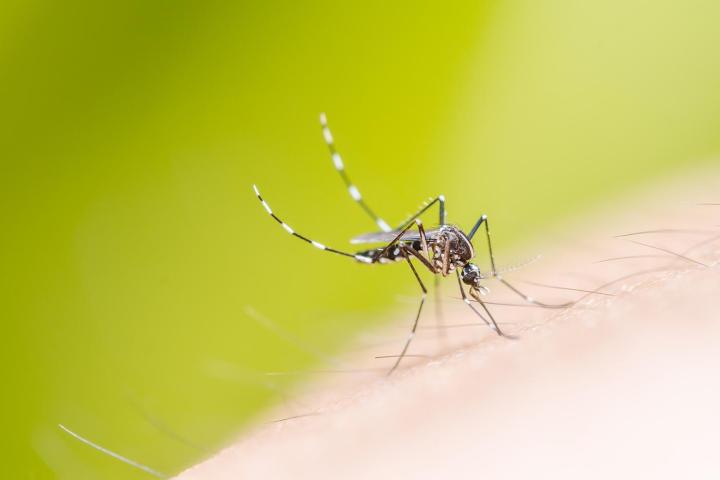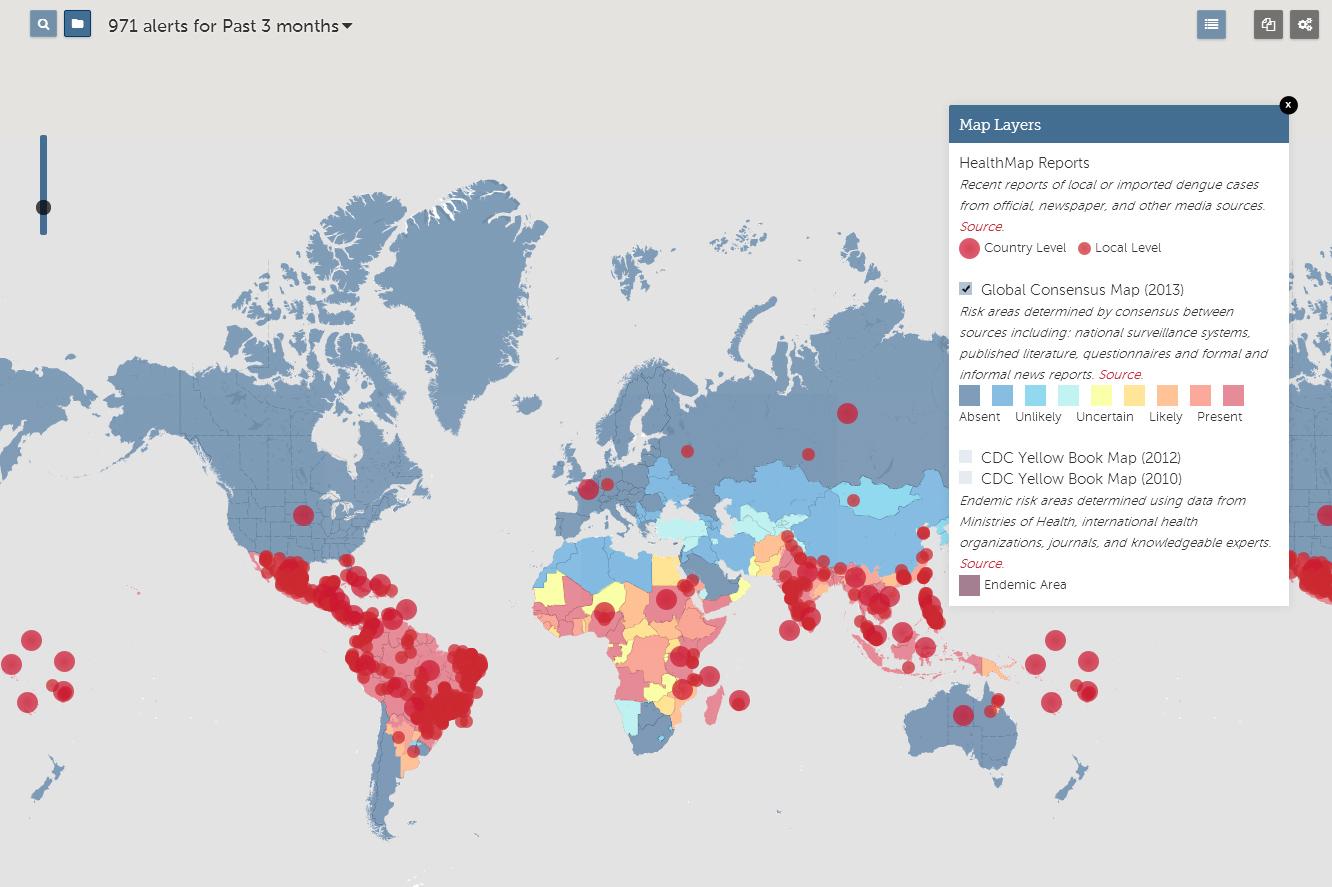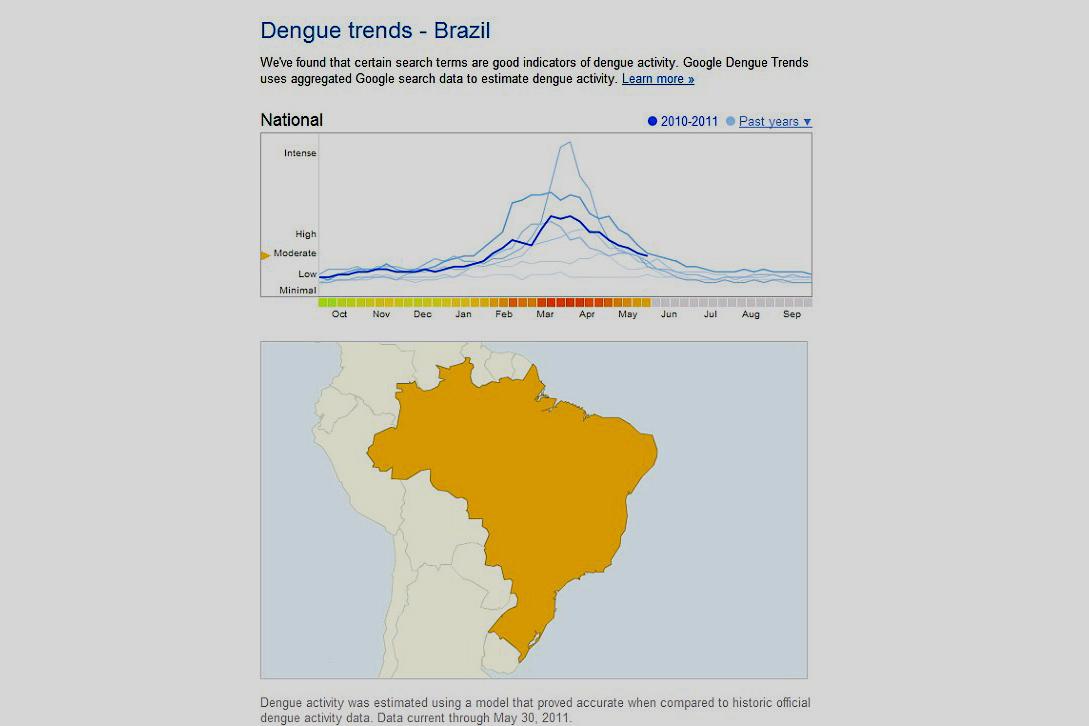
Not quite the devastating plagues depicted in “The Walking Dead” or “World War Z,” but one that spreads just as easily through the chomp of an infected beast: Dengue fever.
The illness is spread by mosquitos, which bite and draw blood from previously infected humans, then pay it forward upon biting another human. The ensuing sickness involves flu-like symptoms, severe headache, pain behind the eyes, severe muscles, bones and joints aches, and rashes.
More than 100 countries have felt the effects of Dengue fever, including Brazil, host of the FIFA World Cup 2014. Futbol fans are currently spread across cities like Recife, Salvador, Natal and other highly vulnerable areas of Northern Brazil. (On the plus side, the southern regions are seasonly safer.) That’s a lot of potential carriers in contact with a lot of mosquitoes eager to snack, meaning the soccer extravaganza carries serious potential to further spread the fever.
Which is where mutant mosquitos may save the day.
The mosquitos are essentially born to die – quickly, before they can spread Dengue fever.
“Each Oxitec male mosquito carries two copies of the lethal gene, of which one will always be inherited by each of the offspring,” Oxitec CEO Hadyn Parry explains. “The gene itself is neither allergenic nor toxic. Instead, it acts as a switch to control the activity of other genes, so it ties up some of the cell’s essential machinery and disrupts its normal function. As a result, the modified mosquitoes can’t develop properly and die before becoming adults.”
While Oxitec wasn’t able to use the mosquitos in Brazil for the World Cup, the company hopes to unleash them in time for the 2016 Summer Olympics in the same country, when it will once again play host to millions of visitors from across the globe.
So how does one go about Frankenstein-ing skeeters? It begins with a stable and contained population of “pest species” raised in a lab. From there, individual eggs are micro-injected with DNA, and once the mosquitoes are born, they’re examined and tested to select a strain most effective to serve as an unknowing soldier in the battle against Dengue. “The mosquito strain we use in Brazil has had over a decade of testing,” notes Parry.
But that hasn’t preventing critics from buzzing. Genewatch UK, a non-for-profit group dedicated to “investigating genetic science and technologies will impact on our food, health, agriculture, environment and society,” has disputed the effectiveness of the GM mosquitoes. In an April 2014 statement, the group declared that “no published toxicity tests to show that swallowing GM mosquitoes or being bitten by surviving GM females is safe for humans, pets and wildlife.”
“Oxitec’s ineffective and risky GM insects are a poor showcase for British exports to Brazil,” said Dr. Helen Wallace GeneWatch, UK Director. “A desperate desire to prop up British biotech and reward venture capital investors should not blind the UK and Brazilian governments to the risks of this technology.”
“We have reduced the Dengue mosquito population by over 90 percent.”
According to Perry, Oxitec has been working through the “proper, scrutinized, independent, regulatory systems in each country” before implementing the mosquitos, and the results so far are good. “Each country can make its own decision based on the data – the trend here is clear as regulators in several countries have approved imports and trials and Brazil has declared this safe for commercial use.”
Assuming toxicity is truly a non-issue, what matters most is whether or not the presence of these mosquitoes equal a decrease in Dengue. Parry claims the verdict is already in.
“In every urban trial we have done we have reduced the Dengue mosquito population by over 90 percent,” he said. “This is something that is just unattainable by use of insecticides.”
For the roughly 25,000 people who die of Dengue fever every year, that means genetically modified mosquitos could literally be the difference between life and death.





